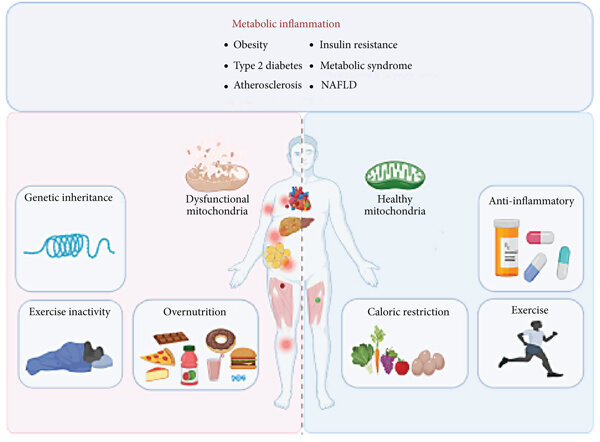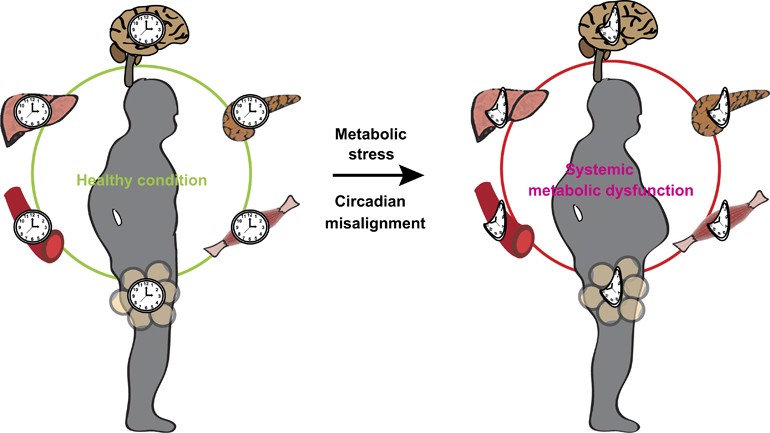MMI’s metabolic and nutritional medicine offers personalized strategies to improve health and prevent chronic diseases.
This article delves into the principles of metabolic and nutritional medicine offered by MMI, its benefits, and how it can transform your health.
What is Metabolic and Nutritional Medicine?

Metabolic and nutritional medicine is a specialized branch of healthcare that emphasizes the significant role of metabolism and nutrition in maintaining health and preventing disease. It encompasses a holistic approach that takes into account how individual metabolic pathways interact with dietary habits, lifestyle choices, and overall health.
This integrative field recognizes that personalized nutrition can have a profound influence on metabolic function, enhance energy levels, and support effective weight management.
Understanding Metabolism:
Metabolism is a complex network of biochemical processes that convert food into energy, enabling our bodies to function efficiently. It involves various pathways, including:
- Catabolism: The breakdown of nutrients to release energy. This process involves the conversion of carbohydrates, fats, and proteins into usable energy forms like ATP (adenosine triphosphate).
- Anabolism: The synthesis of complex molecules from simpler ones, utilizing the energy produced during catabolism. This is essential for growth, repair, and maintaining cellular function.
When metabolism is functioning optimally, it contributes to:
- Energy Production: Efficient energy conversion allows for better physical and mental performance, enabling individuals to engage in daily activities with vigor and vitality.
- Weight Management: A balanced metabolism plays a crucial role in maintaining a healthy weight by regulating fat storage and energy expenditure. This balance helps individuals achieve their weight goals more effectively.
- Disease Prevention: A well-functioning metabolic system can lower the risk of chronic diseases such as diabetes, cardiovascular disease, and obesity. By preventing metabolic dysfunction, individuals can significantly enhance their long-term health outcomes.
Also Read: https://fitnesssmartly.com/fitness-tips/
The Importance of Nutrition:
Nutrition is a critical factor influencing metabolism.The foods we eat supply the vital nutrients necessary for our bodies to function properly. Nutritional medicine focuses on several key aspects:
- Whole Foods: Emphasizing nutrient-dense, minimally processed foods that support metabolic health. These foods are typically rich in vitamins, minerals, fiber, and antioxidants, all of which are essential for overall well-being.
- Micronutrients: Understanding the role of vitamins and minerals in metabolic processes. Micronutrients play vital roles in enzyme function, hormone production, and overall metabolic regulation.
- Personalized Nutrition: Tailoring dietary plans to meet individual needs based on genetic, environmental, and lifestyle factors. This personalized approach acknowledges that no single diet works for everyone, as individual responses to food can vary greatly.
How MMI Approaches Metabolic and Nutritional Medicine:

At MMI, a comprehensive approach is taken to integrate cutting-edge research with personalized care. This dual focus ensures effective interventions that address metabolic health issues. Here’s how MMI approaches metabolic and nutritional medicine:
Comprehensive Assessment;
Before creating a personalized plan, MMI conducts a thorough assessment of each patient. This includes:
- Metabolic Testing: Evaluating metabolic rate, insulin sensitivity, and other relevant biomarkers. These tests help identify specific metabolic dysfunctions and provide insights into how the body processes nutrients.
- Nutritional Evaluation: Analyzing dietary habits and identifying nutrient deficiencies or imbalances. This evaluation involves reviewing food intake, understanding eating patterns, and assessing the adequacy of essential nutrients.
- Lifestyle Analysis: Considering physical activity levels, sleep patterns, and stress factors that may impact metabolism. A holistic view of lifestyle allows MMI to develop comprehensive strategies that address all aspects of health.
Personalized Nutrition Plans:
Based on the assessment results, MMI develops customized nutrition plans tailored to individual needs. These plans may include:
- Macronutrient Balancing: Ensuring an appropriate ratio of carbohydrates, proteins, and fats to optimize energy levels and support metabolic function. This balancing act can enhance satiety and provide sustained energy throughout the day.
- Meal Timing Strategies: Implementing strategies such as intermittent fasting or timed eating to enhance metabolic efficiency. Research suggests that meal timing can influence metabolic pathways and improve insulin sensitivity.
- Supplement Recommendations: Advising on specific vitamins, minerals, or other supplements to address deficiencies and support overall health. Supplements may be necessary to bridge nutritional gaps and support metabolic processes.
Also Read: https://fitnesssmartly.com/what-is-fitness/
Ongoing Support and Education:
MMI emphasizes the importance of patient education and ongoing support. This includes:
- Regular Follow-ups: Monitoring progress, making necessary adjustments to nutrition plans, and addressing any emerging health concerns. Continuous support ensures that individuals stay on track and can make informed decisions about their health.
- Workshops and Seminars: Offering educational resources to empower patients with knowledge about nutrition, metabolism, and healthy lifestyle choices. Educational programs provide valuable insights into the science of nutrition and its impact on health.
- Community Engagement: Creating a supportive environment where individuals can share experiences and motivate each other on their health journeys. Community support fosters accountability and encourages individuals to stay committed to their health goals.
Benefits of Metabolic and Nutritional Medicine at MMI:

Choosing metabolic and nutritional medicine at MMI offers numerous benefits, including:
- Improved Energy Levels: Personalized nutrition plans help optimize energy production, reducing fatigue and enhancing daily performance. When individuals feel energized, they are more likely to engage in physical activity and maintain a positive mindset.
- Weight Management: Effective strategies for weight loss or maintenance tailored to individual metabolic needs. MMI’s personalized approach helps individuals overcome obstacles to weight loss and achieve sustainable results.
- Enhanced Overall Health: By addressing the root causes of metabolic imbalances, patients can experience improved health outcomes and quality of life. This holistic approach ensures that all aspects of health are considered and addressed.
- Reduced Risk of Chronic Diseases: Personalized interventions can help prevent or manage chronic conditions related to metabolic dysfunction. Early intervention and tailored strategies can significantly lower the risk of diseases such as type 2 diabetes, hypertension, and cardiovascular issues.
Additional Insights on Metabolic and Nutritional Medicine:
Also Read: https://fitnesssmartly.com/what-size-television-can-fit-a-2201ds/
The Role of Genetics in Metabolic Health:
Understanding the genetic predisposition to metabolic conditions can provide valuable insights into personalized nutrition plans. At MMI, genetic testing may be used to assess how an individual’s unique genetic makeup influences their metabolism and nutritional needs. This information can lead to more targeted dietary recommendations and lifestyle modifications.
The Impact of Stress and Sleep on Metabolism:

Stress and sleep quality are often overlooked factors that significantly impact metabolism. Chronic stress can lead to hormonal imbalances that disrupt metabolic function, while insufficient sleep can impair insulin sensitivity and appetite regulation. MMI addresses these factors through personalized stress management techniques and sleep hygiene education, ensuring that patients consider all aspects of their health.
Integrating Physical Activity:
While nutrition plays a crucial role in metabolic health, physical activity is equally important. MMI encourages patients to incorporate regular exercise into their routines, tailoring activity recommendations to individual preferences and capabilities. Exercise not only aids in weight management but also enhances metabolic rate and promotes cardiovascular health.
FAQ’s
1. What is metabolic medicine?
Metabolic medicine is a branch of healthcare that examines how metabolism and nutrition impact overall health, focusing on personalized strategies for improving metabolic function.
2. How does MMI assess metabolic health?
MMI conducts comprehensive assessments that include metabolic testing, nutritional evaluations, and lifestyle analyses to identify individual needs.
3. What are the benefits of personalized nutrition plans?
Personalized nutrition plans help optimize energy levels, support effective weight management, enhance overall health, and reduce the risk of chronic diseases.
4. How does stress affect metabolism?
Chronic stress can lead to hormonal imbalances that disrupt metabolic function, impacting energy levels and appetite regulation.
5. Is physical activity important for metabolic health?
Yes, regular physical activity is crucial as it enhances metabolic rate, supports weight management, and promotes overall cardiovascular health.
Conclusion
In conclusion, MMI’s metabolic and nutritional medicine offers a holistic approach that integrates personalized assessments and strategies to enhance metabolic function and overall health. By focusing on nutrition, lifestyle, and ongoing support, patients can effectively manage weight and reduce the risk of chronic diseases. This comprehensive care empowers individuals to take charge of their health through informed dietary choices and sustainable lifestyle changes.